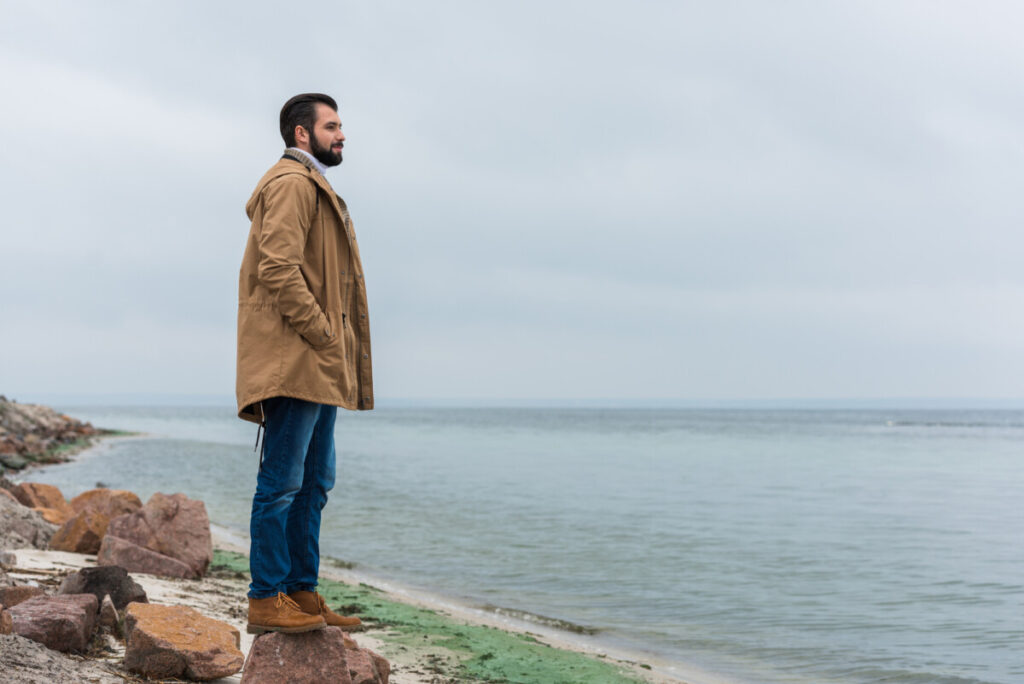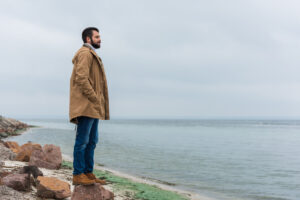 Gay Men Who Have Given Up on Finding a Relationship
Gay Men Who Have Given Up on Finding a Relationship
In my thirty years (2022) of being a gay men’s specialist psychotherapist and life/career/relationship coach, perhaps the most common topic new clients present to me in asking for help is about relationships (and, relatedly, sex). There are other topics, too, about raising your quality of life in either personal or professional ways, but love and sex are the top two. And within that, it’s often about either finding a relationship, making a relationship better, or getting over the loss of relationship (especially in preparation for finding a new one).
In many years of writing blog articles and producing podcast episodes, I’ve come to learn more about the global following I’ve accumulated, which I’m very grateful for. I’m glad that these discussions are reaching guys in so many different places in our world. I welcome feedback, and it’s very rewarding to get an email, text message, or post comment when someone has found the material inspiring, supportive, or valuable.
Recently, I received an email from a podcast listener who asked me to speak to a topic he was curious about, which was, “What is your advice for single gay men who have just given up on finding a relationship?”
In the same week, one of my clients asked the same thing. In group sampling theory, if one (or more) people have the same comment/question/complaint/suggestion, there’s a good chance many others do, too. So, I’d like to discuss that topic today, in the hopes that theory is right!
How do we, as a gay male community, deal with feelings of giving up in finding a partner or relationship after many years of being seemingly “involuntarily” single?
With my clients in clinical social work, coaching, and therapy for gay men, I often discuss how mounting an “adaptive coping response” is the strategy for any life challenge. Sure, problems arise, but for every problem, we can rally our internal and external resources to at least mitigate it, even if we might not be able to resolve it fully right then. Internal resources are called upon to be evoked within us already, like courage, determination, hope, perseverance, resilience, strategy, compassion, and drive. External resources are things outside of us that help us toward our goals: a book, website, professional’s help, medicine, tools of some kind, expert information, food, fuel, water, and, even a blog!
To rally these resources to cope with this “giving up” feeling, first, I think we need to look at what this is. Discussions in psychology have said that if we are unhappy about a situation, and our attempts to change it fail, then depression can set in. It’s called “depressogenic.” We become hopeless that we have the self-efficacy/self-agency to do anything about it. This can be demoralizing; we can feel helpless, trapped, ineffective, and existentially impotent. Many life situations can make us feel this way: a chronic illness, an injury or disability, a bad job, a frustration with wanting something we can’t have, the burden of living with something we don’t want, or having lost something that we can’t get back.
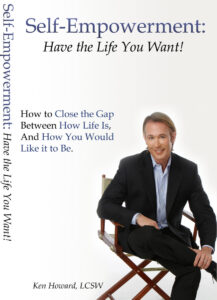 But as depressing as some life situations can be, wallowing in lament is not the way to go. I feel strongly about this. In fact, my 2013 self-help book, Self-Empowerment: Have the Life You Want! goes deeply into this. Self-empowerment is the belief that no matter what your circumstances are that bother you, there is always something we can do to change them, even if it’s just changing our attitude about them.
But as depressing as some life situations can be, wallowing in lament is not the way to go. I feel strongly about this. In fact, my 2013 self-help book, Self-Empowerment: Have the Life You Want! goes deeply into this. Self-empowerment is the belief that no matter what your circumstances are that bother you, there is always something we can do to change them, even if it’s just changing our attitude about them.
When I work with single gay men who complain to me that they want a partner but can’t seem to find one, that’s one of the first things I encourage them to do: find a new way of looking at their own life and “cognitively reframe” their outlook from one of chronic frustration that they don’t have a partner/relationship, and try to look at things from a different perspective.
When guys talk about “giving up,” that’s really just an expression of fatigue. They have tried dating apps, gay bars/clubs, professional matchmakers, speed dating, all kinds of supposed “resources” for gay male singles to find each other, and yet they remain single.
I think also the expression that they have “given up” is a certain cry for help, especially from me as their therapist or coach, because they can reasonably expect to receive emotional support (even sympathy) about this from their provider. But providers like me aren’t just here to simply provide emotional support, although that can be part of the professional service. It’s also about my challenging that person to let go of old patterns of thinking and behavior that no longer serve them, or do not give them the results they want. As the old AA saying goes, “Nothing changes, if nothing changes.” Another AA axiom that says the same thing is, “If you always do what you’ve always done, you always get what you always got.” Yet another is, “Insanity is doing the same thing over and over and expecting a different result.” Those AA folks like to see change!
As pithy as these phrases can be, they hold a lot of truth, a certain brutal reality that while the world has to meet you half-way by providing Fate or opportunity or luck or just “catching a break,” sure, there is at least half (many would say more than half) that we can do on the other side.
Hopelessness, demoralization, a sense of futility, fatigue, or even cynicism are not attractive qualities for you to have if you’re trying to find guys who might want you for a relationship partner. It’s like in the current socio-political morass of straight guys who are “involuntarily celibate,” or “incels,” which is known in politics and society as being a group of misogynistic losers who feel that women “owe” them attention, love, sex, and probably overall “obedience” as well in the order of the patriarchy. That’s not going to get them a date with Taylor Swift or whoever they’re after. In fact, it will repel most (not all) straight women entirely. We, as gay men, don’t want to get anywhere near the kind of self-pity, self-loathing, and entitlement of the straight incel crowd. Not a good look.
Instead, we have to remember that disappointment, frustration, and our long-term goals (like finding a partner) can take a very long time. Life doesn’t just respond to our demands, or there would be a lot more people who are millionaires by the time they are 30. As the Supremes song said, “You can’t hurry love/no, you just to have to wait/she said trust, give it time, no longer how long it takes.”
What Giving Up Means

When guys say to me that they are “giving up,” what I hear is that they need a respite from the relentless frustration of actions that don’t produce what they supposedly want, which is changing their life status from single to partnered. A song that I wrote for my upcoming musical, “On the Boulevard,” about a young gay actor in West Hollywood, yearns for the day, “When I Becomes We.”
Giving up can mean that we are calling “time out,” recess, break time. We use that to take a moment to take our power back and feel in control of our lives again. We use the self-compassion to just acknowledge “effort fatigue” in running around our community like we’re looking in a crowd to meet a friend for lunch: “Is it you? Is it you? Is it you?” You can only do that for so long before you just want to give it all a rest.
In those times, we need to re-balance our empowerment to our side. We have to stop supplicating the Fates of Life to grant us a partner like The Great Oz would grant us brains and step back and regroup.
We have to let go of the heteronormative notion (that especially stresses straight, cis women) that one is not truly a “legitimate adult” unless one is married, and even then is a parent, as well. There are definitely some people (the ones who hate gay men, are confused by lesbians, dismiss trans people, dismiss bisexuals, and also think Elvis is still alive, just waiting on another planet to make his big comeback) who think that straight, cis adults (men or women) are not really “grownups” until they are married with children of their own. Some of my colleagues who espouse that whole “sex addiction treatment” model (aka: charlatanism) think this way, only they extend that heteronormative elitism and judgmentalism to gay men as well. Nuts to that.
We have to declare that living single (and slutting around without benefit of Papal approval) is a perfectly legitimate state of living. Feminist Irina Dunn said, groundbreakingly in the Women’s Movement, “a woman needs a man like a fish needs bicycle.” She was calling out the inherent patriarchy and misogyny that women aren’t fully formed human beings without a man’s “name” to legitimize them in society. Sisters are doing it for themselves, thank you very much, as Aretha Franklin and Annie Lennox sang in the 80s.
Gay men can that, too. We might “want” a partner. We might think that the partnered existence is our preferred state of domestic being. But we don’t “need” one to live a social, domestic, professional, civic, loving, sexual life.
Being at Our Best/Most Attractive
But if you “still want one,” as the Tin Man said to the Great Oz who told him that “hearts will never be practical until they can be made unbreakable,” we need to think about how we can be at our genuine, authentic best. Not some fake, socially-prestigious illusion, but our true selves. There is a saying that if we want to attract a good partner, we need to be one, too.
What do we mean by this? I think it’s about changing our thinking, and our subsequent behaviors, to be at our best in our emotional, physical, sexual, relational, social, civic, recreational, and professional health. (Oh. Just that. Yeah, I’ll get right on that.)
With each of these, it’s thinking of the “other person” and not just the me, me, me who wants to “get” a partner like Glenn Close wants to “get” an Oscar. We have to think about what we can do to provide for the needs of the other, as well.
We serve our emotional health by going to therapy or coaching and reflecting on how we are emotionally. Have we learned to cope with past traumas? Have we learned reasonable affect regulation? Have we availed ourselves of the help we need, including possible prescriptions, to enhance and stabilize our mood and functioning? Have we learned skills like empathy, generosity, communication, assertiveness, maturity, reason, boundary-setting, and maybe a little sacrifice?
Are we taking care of our physical health by tending to the things people notice socially, like getting enough rest and not appearing sleepy or distracted or fatigued on a date? Are we a reasonable weight? Do we attend to our hair, skin, nails, mobility, and internal things like our cholesterol or hormone balancing? Do we reasonably exercise that keeps the machine running for quite possibly many decades into the future?
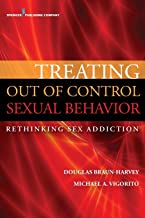 In our sexual health, are we somewhat familiar with broad principles of sexual health, and are we conducting our sex lives within those guidelines (my article on Vigorito and Braun-Harvey’s Six Principles of Sexual Health, from their book, Treating Out of Control Sexual Behavior: Rethinking Sex Addiction, as applied to gay men, is here). Are we regularly screened for STD’s as part of our PrEP regimen? Are we adherent to our HIV meds? Do we understand concepts like adult consent, or even sexual etiquette that helps our partners feel comfortable?
In our sexual health, are we somewhat familiar with broad principles of sexual health, and are we conducting our sex lives within those guidelines (my article on Vigorito and Braun-Harvey’s Six Principles of Sexual Health, from their book, Treating Out of Control Sexual Behavior: Rethinking Sex Addiction, as applied to gay men, is here). Are we regularly screened for STD’s as part of our PrEP regimen? Are we adherent to our HIV meds? Do we understand concepts like adult consent, or even sexual etiquette that helps our partners feel comfortable?
In relational health, have we learned to both listen to another person, but also to express or even assert our own feelings as well? Have we practiced how to compromise and forge a solution when we are on opposite sides of an issue? Have we learned to address behaviors and not “being” in another person? Can we disagree with dates, family, coworkers, neighbors, without some kind of crass degradation into a screaming match? Can we set boundaries that don’t allow ourselves to be exploited, but have the self-awareness and self-reflection to know when we might be trodding on someone else’s rights?
Are we active in our community? Do we ever do anything for others less fortunate? Are we a part of any social groups, organizations, clubs, teams, or institutions? Do we vote our political beliefs in elections? Do we have a sense of identifying with the communities in which we live (by geography, cultural background, race, ethnicity, national origin, spiritual orientation, gender identity, socio-economic status, etc.?) Who are our peers that we might relate to as affinity groups? Do we make efforts to diversify our social lives to many different backgrounds or ages of people?
Do we have professional self-esteem in our work (my article on that is here)? Are we proud of the contribution we make to a collective society, or are we striving to change it? Do we have not just a “work ethic” to participate in a collective, capitalistic marketplace society, but a fondness for it, or even a passion for it? That kind of passion is very attractive to potential partners, even if they don’t understand or even like what we do for a living.
Hollywood Golden Age actress Bette Davis once was photographed for a greeting card sitting on her loveseat at home holding a little embroidered pillow that said, “Old age ain’t no place for sissies.” Despite the microaggression homophobia in that statement, I get her point: aging requires resilience to navigate it successfully. She was proud that “she did it the hard way.”
Finding a partner is like, too. It takes a lot of resources for that lovely alchemy of love, luck, and Fate to align to create that “match made in Heaven.”
 Internal Resources
Internal Resources
The internal resources that takes include resilience against the frustrations of dating disappointments and losses. An optimism that, with time, someone very special for us (and maybe more than one) is a part of our future. It takes “abundance thinking,” not a poverty of thinking that “good partners are for everyone else but me.” There are many — who are probably at this very moment lonely and wishing to meet someone just like you – in this world. And they don’t ride in a white horse, and they’re not flying in wearing a cape. They’re people who are just everyday people – until they are held in the eyes of love from you.
We have to cultivate the internal resource of patience. You “can’t hurry love.” Try that game, and you’ll lose. AA says “living life on life’s terms” about a lot of things, including that the special opportunity that comes in meeting a great partner has a certain unpredictable serendipity to it. In the meantime, we enjoy being partners to our own selves. We are our own company. We take ourselves out into the world. We see the sights. We don’t sit it out; we participate.
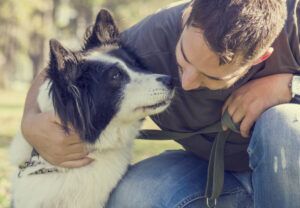 External Resources
External Resources
External resources are the things outside of us that we relate to, avail ourselves of, and access in the world around us. We seek out social opportunities, some online, but most in person. We look for ways to get exposure; Prince Charming can’t find us if we’re like a buzz-cut Rapunzel hiding in our bell tower. Isolation is not your friend when you’re single, except at those times when we want “me time” all to yourself, which, incidentally, you would need even if you were partnered. And you have to make spending time yourself knowing that are “in good company,” even when you’re alone. You know what they say: Character is what you do when no one is watching.
Living in gratitude for all the resources we have around us certainly helps to be attractive to others. A different attitude can make a Heaven of a Hell, and a Hell of a Heaven. We need to rest sometimes, but as (pro-gay country music singer) Lee Ann Womack sang, “If you have the choice to sit it out, or dance, I hope you dance.” Liza sang that we had to “ring them bells” if we are going to “haul me home hus [band] if it’s that last thing I do.” You have to put yourself out there. I met my husband (of 20 years), after nearly 20 years of being single (yes, do the math; I’m old) at a Cinco de Mayo T-Dance at a club, after years of frequenting LA’s bars and clubs. I always wonder what my life would have been if I had stayed home that afternoon. Not nearly as good, I bet.
Social Rules, Games, Protocols
 I know that all of this might sound a little idealistic. My clients who have “given up” on finding a partner certainly might. They challenge me to acknowledge the reality of some kind of sick games that society, even gay society, can play. The obsessive, neurotic focus on appearance, money, and some kind of social position gets monotonous. The “silos” of subcultures in the LGBT+ community, including just the “G” (gay) community, can be fun, but also can feel limiting. Geeks. Jocks. Leather Men. Academics. Professionals. Suburbanites. These subcultures of gay men tend not to mix, as well as among race, ethnicity, and socio-economic status, and that’s unfortunate. Gay men can tend to partner along their own “silo” far too often, like it’s Lady Mary on “Downton Abbey” having to find a “suitable suitor” all over again to preserve the entail of the family estate.
I know that all of this might sound a little idealistic. My clients who have “given up” on finding a partner certainly might. They challenge me to acknowledge the reality of some kind of sick games that society, even gay society, can play. The obsessive, neurotic focus on appearance, money, and some kind of social position gets monotonous. The “silos” of subcultures in the LGBT+ community, including just the “G” (gay) community, can be fun, but also can feel limiting. Geeks. Jocks. Leather Men. Academics. Professionals. Suburbanites. These subcultures of gay men tend not to mix, as well as among race, ethnicity, and socio-economic status, and that’s unfortunate. Gay men can tend to partner along their own “silo” far too often, like it’s Lady Mary on “Downton Abbey” having to find a “suitable suitor” all over again to preserve the entail of the family estate.
Sometimes we have to get out of our “niche existences” to find someone decent (ever seen a Hallmark Channel Christmas movie? Go visit your old home town and marry the high school quarterback you crushed on before he got married, had two kids, and was caught in bed with the pool boy when Sorority Sister came home from Pilates). Try new things in new spaces, different actions to get different results.
The skills of dating can be a pretentious game, but they can also be about mature adult behavior. We need to try to be good at communicating (coaching can help that). We need to cultivate skills in negotiation and compromise. We need to give in sometimes, but not so much that we resent the other person in seething silence (therapy can help that). We have to find ways to be “good at” sex, both for our own needs/pleasure, and our partner’s (partners’?) (sex therapy can help that, as well as watching porn and taking good notes.)
We have to learn to “compete” with That Bitch, at least a little. We have to be at our best, or try to, most of the time, because Johnny-Come-Lately-Twink is doing the same thing, and Hottie Trainer at the gym only has one Saturday night this week to spend on one of you. We have to “live life on life’s terms” enough to know that yes, sorry, it is a competition sometimes. We can’t slough off and expect Mr. Right to tolerate us at our worst.
Quality of Life Beyond “Being Partnered”
 Part of taking a step back and taking a break from our obsession with finding a partner is about challenging social expectations that we have to always pair up like some kind existential Noah’s Ark. It’s not always two; it can be more in polycules in a polyamorous relationship. It might not be two because it’s one, “just” us. Only we have to take the “just” out of that: It is us.
Part of taking a step back and taking a break from our obsession with finding a partner is about challenging social expectations that we have to always pair up like some kind existential Noah’s Ark. It’s not always two; it can be more in polycules in a polyamorous relationship. It might not be two because it’s one, “just” us. Only we have to take the “just” out of that: It is us.
Living the Good Life single means letting go of the dyadic oppression and taking in the world around you for enjoying things beyond the (admitted) joys of being partnered (and I know there are many). But partnered people will tell that being partnered does require some sacrifice; you can’t just live for yourself all the time in some myopic existence; someone is home waiting for you and you better text if you’re going to be home late. You have to consider their feelings, their needs, their existence sometimes if you want them to stick around. That’s the price you pay for someone willing to jump in front of a bullet for you.
Living the Good Life is learning to have good time of it whether you have a partner, or not. Whether you have youth, or not. Or appearance privilege, or not. Or a voluminous stock portfolio, or not. Or social position, or not. Or social influence, Gossip Girl. Or a fully-functioning body. Or all of your senses and limbs, or not. Or a great chest hair pattern, or not. Or a long lifespan.
Quality of life gets a lot better, and we’re a lot more attractive, when we strive to make ourselves interested, in other people, and interesting, by following our own professions, hobbies, interests, pastimes, and passions.
If that doesn’t work to get you noticed, try Botox. Share your baggie of coke at the club. You’ll have more marriage proposals than Henry Cavill in the locker room.
You can’t hurry love; you gotta trust, give it time, no matter how long it takes.
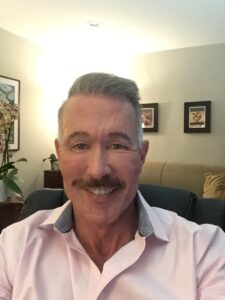
If you would like help on how to be interested, and interesting, at your best self, consider therapy (for guys in California, where I’m licensed) or coaching services. There are many areas of overlap, but some important legal and ethical differences, that we can discuss. For more information on becoming a client, email Ken@GayTherapyLA.com, or, preferably, text me at 310-339-5778. Now…about that haircut…

